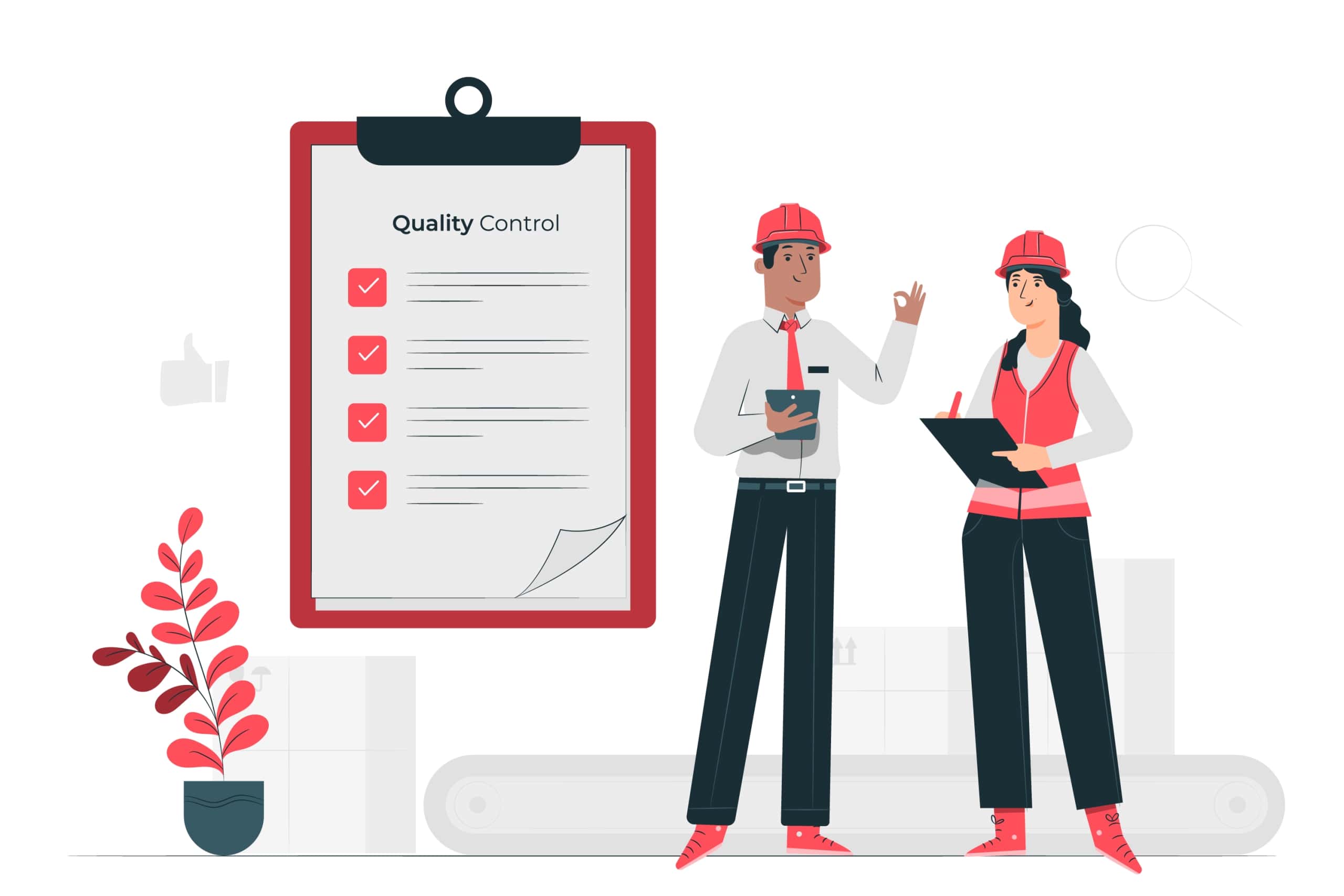Transformative Training with Virtual Reality
Implementing Virtual Reality (VR) in training within the wet wipes manufacturing sector signifies a notable transition towards enhanced and immersive learning experiences. Virtual reality offers a simulated environment that replicates the real production conditions of a wet wipes facility, enabling trainees to acquire practical experience without the hazards of physical equipment or material wastage.
Immersive Learning Environment
Employees can use VR headsets to access a virtual simulation of their workplace in a VR training session. Here, users can engage with virtual machinery and systems that operate identically to their real-life counterparts. They can learn the technical details of machinery operation, such as setup, maintenance, and troubleshooting, enjoyably and safely. Practicing in a simulated environment allows employees to make mistakes without facing real-world consequences, which can greatly speed up the learning process and boost confidence.
Personalized Training Modules
VR training also offers the benefit of being adaptable. Training programs can be updated or changed based on worker demands or new equipment introductions. This adaptability guarantees that the training remains pertinent and current with the most recent industry norms and innovations. It enables customization of the training experience to accommodate various learning speeds and preferences, enhancing its effectiveness for a varied workforce.
Authentic Simulations for Elaborate Procedures
VR technology can replicate both the physical elements of the wet wipes manufacturing process and intricate situations that could arise in the production environment. This encompasses emergency scenarios, equipment malfunctions, or quality assurance problems. Trainees can improve their problem-solving skills and prepare for real obstacles by practicing how to respond to these circumstances in real time.
Improved Involvement and Maintenance
Learning via VR is typically more captivating than conventional techniques such as lectures or video lessons. VR’s interactive features aid in sustaining trainees’ focus and engagement. Research indicates that individuals are more likely to remember knowledge well when they engage in hands-on learning. Virtual reality’s interactive method enhances memory retention and comprehension of concepts.
Scalability and Replicability
Once created, VR training programs can be expanded to many places without incurring substantial extra expenses. This is especially advantageous for major wet wipes manufacturers with plants in many regions. The training can be repeated multiple times at no extra cost, guaranteeing that all staff achieve a uniform level of competency.
By integrating virtual reality (VR) into their training procedures, wet wipes manufacturers can improve the effectiveness and safety of their training programs and respond more promptly to technology changes and evolving market requirements. With the advancement and increased availability of VR technology, it is set to become more important in industrial training settings.
Enhanced Quality Control through Augmented Reality
Augmented Reality (AR) is increasingly being used as an advanced tool for quality control in the production of wet wipes, providing new methods to oversee operations and maintain product quality. Augmented Reality (AR) enables operators and quality assurance (QA) workers to engage with production data more intuitively by superimposing digital information onto the physical environment, allowing them to make real-time decisions promptly.
Visualization of Data
Augmented reality technology can overlay important data, operational details, and analysis directly onto the equipment or manufacturing lines through AR glasses or mobile devices. Operators may access all required data directly in their line of vision, eliminating the need to switch displays or refer to manual reports. The temperature, speed, and moisture levels of the production line may be monitored in real-time. Having instant access to data improves the capacity to promptly recognize and rectify deviations from conventional operating procedures, therefore decreasing the chances of generating inferior wet wipes.
Sequential Instructions
Augmented Reality (AR) can provide interactive, detailed instructions to workers carrying out intricate or crucial activities, such as configuring a new wet wipes machine line or transitioning between several product types. The advice may consist of animated sequences superimposed on the equipment, indicating precisely where modifications need to be made. Clear, visual instructions can minimize mistakes and enhance productivity, particularly for inexperienced staff unfamiliar with certain procedures.
Remote Expert Support
Augmented reality allows specialists to offer remote support to on-site staff by viewing their perspective in real time and directing them through repair, upkeep, or problem-solving duties. This capacity is extremely important for situations where professional advice is needed urgently and the expert is unable to be there in person. It can greatly reduce downtime and enhance the efficiency and quality of maintenance tasks.
Improved Inspection Abilities
Quality control frequently includes thorough inspections to guarantee that each product adheres to strict criteria. Augmented reality (AR) can improve this procedure by superimposing digital markings or emphasizing characteristics on the physical product, leading the inspector through the quality inspection process. For instance, augmented reality (AR) can identify specific locations on a wet wipes package that require inspection for sealing integrity, labeling accuracy, or appropriate saturation levels. This accelerates the inspection process and guarantees its systematic and comprehensive execution.
Integration of Machine Learning with Predictive Maintenance
By combining augmented reality with machine learning algorithms, quality control may be significantly enhanced through the use of predictive maintenance. Predictive models can use data from AR devices and sensors in manufacturing to anticipate equipment failures and process deviations. This proactive strategy helps avoid downtime and assures consistent compliance with quality requirements.
AR integration in wet wipes manufacturing quality control processes aims to improve accuracy and efficiency while providing staff with instant, actionable data. AR technology is advancing and will soon be a crucial tool for achieving operational excellence and high product quality in the manufacturing industry.
Future Prospects and Implementation Challenges
Augmented reality (AR) and virtual reality (VR) technologies are being incorporated into the production of wet wipes, showing great potential for the industry’s future. These technologies have great potential to improve training and quality control procedures. Yet, their execution presents a distinct array of obstacles that need to be overcome to fully leverage their advantages.
Future Outlook
Ongoing Technological Progress
As augmented reality (AR) and virtual reality (VR) technology advance, their functionalities will grow, resulting in increasingly creative uses in production settings. Enhanced visualization approaches, improved user interfaces, and more intuitive interactions will boost the effectiveness and user-friendliness of these technologies.
Extended Application Range
In addition to training and quality control, AR and VR can also be applied to other aspects of manufacturing, including maintenance, logistics, and marketing wet wipes. These technologies have the potential to establish virtual showrooms or interactive product demos, offering wet wipes manufacturers a novel method to communicate with consumers.
Interfacing with Other Technologies
In the future, AR and VR are expected to become more interconnected with other technological breakthroughs like the Internet of Things (IoT), artificial intelligence (AI), and machine learning. This integration can result in more intelligent industrial processes by utilizing data gathered from AR and VR devices to improve operations, forecast maintenance, and increase decision-making.
Challenges in Implementation
Expensive Initial Investment
The main obstacle to the acceptance of AR and VR technology is the high initial cost. This encompasses the fees associated with hardware and software, as well as the costs of building tailored applications and training personnel to proficiently utilize these new technologies.
Complexity of Technology
Implementing AR and VR solutions necessitates a specific level of technological proficiency. Wet wipes manufacturers must either cultivate this expertise inside or contract it out, both of which can incur significant expenses and time commitments. Maintaining and updating AR and VR systems to align with technology improvements can be a tough task.
Resistance to Change
Implementing new technologies typically faces pushback from staff accustomed to conventional ways. Possible reasons for this resistance include fear of the unfamiliar, worries about job stability, or a lack of trust in adopting new technologies. To overcome this reluctance, substantial efforts in change management and personnel training are necessary.
Privacy and Security of Data
Concerns about data privacy and security are common with any technology that depends on data. It is essential to safeguard critical information when utilizing AR and VR technology. Robust cybersecurity safeguards and clear standards for data usage and storage are necessary.
Scalability
Although AR and VR technologies can be successful in small-scale or trial projects, expanding these solutions to several facilities or bigger businesses might pose logistical difficulties. Ensuring the technology’s consistency and reliability on a large scale is essential for its successful execution.
AR and VR have considerable potential to revolutionize traditional wet wipes manufacturing processes in the wet wipes industry. Wet wipes manufacturers need to tackle the technological, financial, and cultural problems linked to these advances to achieve their potential. By engaging in meticulous planning and making strategic investments, wet wipes manufacturers may surmount these obstacles and pave the way for a new era of manufacturing superiority.




